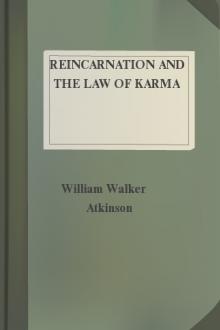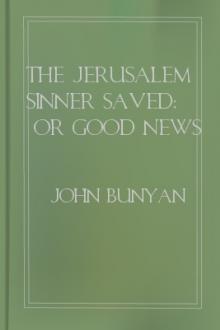Genre Religion. Page - 8

y on earth. The early explorers of America found similar traditions and beliefs among the Red Indians, survivals of which exist even unto this day. It is related of a number of savage tribes, in different parts of the world, that they place the bodies of their dead children by the roadside, in order that their souls may be given a good chance to find new bodies by reason of the approaching of many traveling pregnant women who pass along the road. A number of these primitive people hold to the idea of a complex soul, composed of several parts, in which they resemble the Egyptians, Hindus, Chinese, and in fact all mystical and occult philosophies. The Figi Islanders are said to believe in a black soul and a white soul, the former of which remains with the buried body and disintegrates with it, while the white soul leaves the body and wanders as a "ghost," and afterward, tiring of the wandering, returns to life in a new body. The natives of Greenland are said to believe in an astral body, which leaves the body d

ago, students of Kayasth (clerk) caste were excluded from the Sanscrit College in Calcutta. Now, without any new ordinance, they are admitted, as among the privileged castes, and the idea of the brotherhood of man has thus made way. The silent invasion is strikingly illustrated in the official Report on Female Education in India, 1892 to 1897. On a map of India within the Report, the places where female education was most advanced were coloured greener according to the degree of advance--surely most inappropriate colouring, though that is not our business. The map showed a strip of the greenest green all round the sea-coast. There the unobserved new influence came in. The _Census Report_ for 1901 showed the same silently obtruding influence from over the sea in the case of the education of males. Many such silent changes might be noted. And yet again, the most diverse ideas may be observed side by side in a strange chequer. In the closing years of the nineteenth century, the University of C

hand,strengthens the will and increases strength of purpose as the pettyobstacles of mere self-love are removed. Concentration alone cannotlong remain wholesome, for it needs the light of growingself-knowledge to prevent its becoming self-centred. Yielding aloneis of no avail, for in itself it has no constructive power. But ifwe try to look at ourselves as we really are, we shall find greatstrength in yielding where only our small and private interests areconcerned, and concentrating upon living the broad principles ofrighteousness which must directly or indirectly affect all thosewith whom we come into contact.
I
The Freedom of Life
I AM so tired I must give up work," said a young woman with a verystrained and tearful face; and it seemed to her a desperate state,for she was dependent upon work for her bread and butter. If shegave up work she gave up bread and butter, and that meantstarvation. When she was asked why she did not keep at work andlearn to do it witho

ving up what they call their rights for others, and "in honor preferring one another."
We find that Abram was constantly surrendering his own selfish interests and trusting to God. What was the result? Of all the men that ever lived he is the most renowned. He never did anything the world would call great. The largest army he ever mustered was three hundred and eighteen men. How Alexander would have sneered at such an army as that! How Caesar would have looked down on such an army! How Napoleon would have curled his lip as he thought of Abram with an army of three hundred and eighteen! We are not told that he was a great astronomer; we are not told that he was a great scientist; we are not told that he was a great statesman, or anything the world calls great; but there was one thing he could do--he could live an unselfish life, and in honor could waive his rights, and in that way he became the friend of God; in that way he has become immortal. There is
NO NAME IN HISTORY
so well known as

precious the Saviour's promise, 'If two of you shall agree on earth as touching anything that you shall ask, it shall be done for you of my Father which is in heaven'!"
"Yes, mother dear," assented Mrs. Leland, "and we will claim and plead it for our poor dear Laura, and for Eva, that she may be sustained under the bereavement which awaits her."
"Yes," said Dr. Conly, "and there are many of our friends who will be ready to join us in the petition. I am going now to Woodburn--the captain having telephoned me that one of the servants is ill--and we all know that he and his will be full of sympathy for Eva and her sick mother."
"No doubt they will," said Grandma Elsie, "both as Christians and as warm friends of Evelyn. And it will be quite the same with our other friends."
With that the doctor bade good-morning and took his departure in the direction of Woodburn. The family there were surprised and interested by the news he had to tell of the arrival at Fairview, and of Laura's feebl

d the ray, and that the crystal none the less remained luminous. Greatly astonished, he lifted it out of the light ray and carried it to the darkest part of the shop. It remained bright for some four or five minutes, when it slowly faded and went out. He placed it in the thin streak of daylight, and its luminousness was almost immediately restored.
So far, at least, Mr. Wace was able to verify the remarkable story of Mr. Cave. He has himself repeatedly held this crystal in a ray of light (which had to be of a less diameter than one millimetre). And in a perfect darkness, such as could be produced by velvet wrapping, the crystal did undoubtedly appear very faintly phosphorescent. It would seem, however, that the luminousness was of some exceptional sort, and not equally visible to all eyes; for Mr. Harbinger--whose name will be familiar to the scientific reader in connection with the Pasteur Institute--was quite unable to see any light whatever. And Mr. Wace's own capacity for its appreciation was out o

e lowly birth of Godhead
In the stable of the passions,
In the manger of the mind-soul;
Silent singer of the secret
Of compassion deep and holy
To the heart with sorrow burdened,
To the soul with waiting weary:--
Star of all-surpassing brightness,
Thou again dost deck the midnight;
Thou again dost cheer the wise ones
Watching in the creedal darkness,
Weary of the endless battle
With the grinding blades of error;
Tired of lifeless, useless idols,
Of the dead forms of religions;
Spent with watching for thy shining;
Thou hast ended their despairing;
Thou hast lighted up their pathway;
Thou hast brought again the old Truths
To the hearts of all thy Watchers;
To the souls of them that love thee
Thou dost speak of Joy and Gladness,
Of the peace that comes of Sorrow.
Blessed are they that can see thee,
Weary wanderers in the Night-time;
Blessed they who feel the throbbing,
In their bosoms feel the pulsing
Of a

her people in theworld. Hence the tribes went up to Jerusalem to worship; there wasGod's house, God's high-priest, God's sacrifices accepted, and God'seye, and God's heart perpetually; Psalm lxxvi. 1, 2; Psalm cxxii.; 1Kings ix. 3. But,
Thirdly, We are to consider Jerusalem also in her decays; for as sheis so considered, she is the proper object of our text, as will befurther showed by and by.
Jerusalem, as I told you, was the place and seat of God's worship,but now decayed, degenerated, and apostatized. The word, the rule ofworship, was rejected of them, and in its place they had put and setup their own traditions; they had rejected also the most weightyordinances, and put in the room thereof their own little things,Matt. xv.; Mark vii. Jerusalem was therefore now greatlybacksliding, and become the place where truth and true religion weremuch defaced.
It was also now become the very sink of sin and seat of hypocrisy,and gulf where true religion was drowned. Here also now reignedp

planation of this apparent miracle. It is true that the miracle happened at Port-Royal, and that it arrived opportunely to revive the depressed spirits of the community in its political afflictions; and it is likely that Pascal was the more inclined to believe a miracle which was performed upon his beloved sister. In any case, it probably led him to assign a place to miracles, in his study of faith, which is not quite that which we should give to them ourselves.
Now the great adversary against whom Pascal set himself, from the time of his first conversations with M. de Saci at Port-Royal, was Montaigne. One cannot destroy Pascal, certainly; but of all authors Montaigne is one of the least destructible. You could as well dissipate a fog by flinging hand-grenades into it. For Montaigne is a fog, a gas, a fluid, insidious element. He does not reason, he insinuates, charms, and influences; or if he reasons, you must be prepared for his having some other design upon you than to convince you by his argument.

ishnu, beneficent and the beneficence itself, worthy of allpreference, pure and immaculate; who is Hari, the ruler of the faculties,the guide of all things moveable and immoveable; I will declare the sacredthoughts of the illustrious sage Vyasa, of marvellous deeds and worshippedhere by all. Some bards have already published this history, some are nowteaching it, and others, in like manner, will hereafter promulgate it uponthe earth. It is a great source of knowledge, established throughout thethree regions of the world. It is possessed by the twice-born both indetailed and compendious forms. It is the delight of the learned for beingembellished with elegant expressions, conversations human and divine, anda variety of poetical measures.'"
In this world, when it was destitute of brightness and light, andenveloped all around in total darkness, there came into being, as theprimal cause of creation, a mighty egg, the one inexhaustible seed of allcreated beings. It is called Mahadivya, and was form